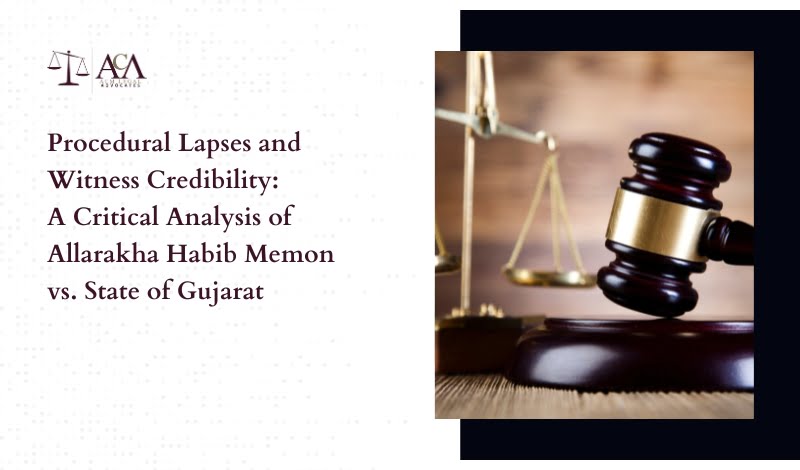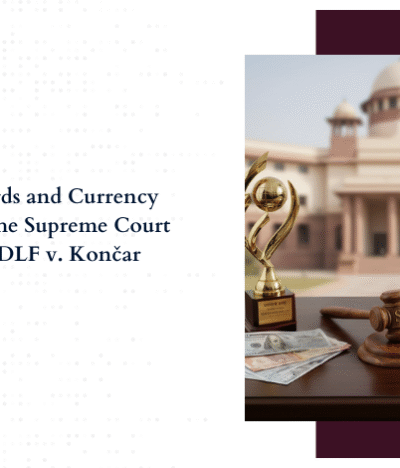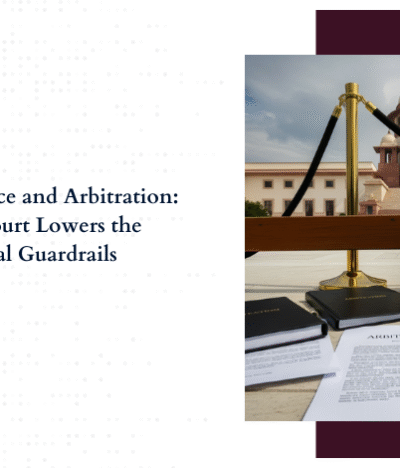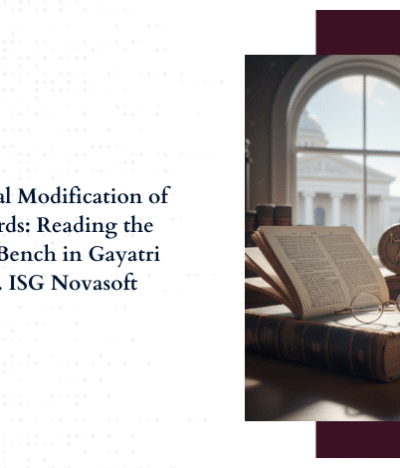“Sole Circumstance of Recovery of Bloodstained Weapon Cannot Form The Basis of Conviction” the statement made by the Hon’ble Supreme Court in the instant case and in that context, the Bench of Justice BR Gavai and Justice Sandeep Mehta observed that, “Even presuming that the FSL reports conclude that the blood group found on the weapons recovered at the instance of the accused matched with the blood group of the deceased, this circumstance in isolation, cannot be considered sufficient so as to link the accused with the crime. In this regard, reliance can be placed on the judgment of Mustkeem alias Sirajudeen v. State of Rajasthan , wherein this Court held that sole circumstance of recovery of bloodstained weapon cannot form the basis of conviction unless the same was connected with the murder of the deceased by the accused.”
Background of the case
The criminal appeals were filed by the appellants, Allarakha Habib Memon, Amin @ Lalo Aarifbhai Memon, and Mohmedfaruk @ Palak Safibhai Memon, challenging the Gujarat High Court’s decision, which upheld their conviction under Section 302 read with Section 120B of the Indian Penal Code (IPC) for the murder of Mohammad Sohail. The appellants were sentenced to life imprisonment by the Additional Sessions Judge, Anand. The case stemmed from an altercation over water supply, which led to a conspiracy among the appellants to eliminate Mohammad Sohail. On 4th May 2011, the appellants assaulted Mohammad Sohail with sharp-edged weapons, resulting in his death. A complaint was filed by Mohammad Sohail’s cousin, leading to the investigation and subsequent conviction of the appellants.
Issue Raised
The primary issue in this case is whether the trial court and the Gujarat High Court were correct in convicting the appellants under Section 302 read with Section 120B IPC, considering the evidence presented, particularly the credibility of the first informant’s complaint and the testimony of the police constable, who was portrayed as an independent witness.
Trial Court Verdict
The offense under Section 302 IPC, being exclusively triable by the Court of Sessions, led to the case being committed and transferred for trial to the Court of the Additional Sessions Judge, Anand, where it was registered as Sessions Case No. 84 of 2011. Charges were brought against the accused-appellants under Sections 302, 323, and 120B IPC. The accused-appellants pleaded not guilty and opted for a trial. The prosecution presented 18 witnesses and submitted 131 documents as evidence to support the charges. When questioned under Section 313 of the Code of Criminal Procedure, 1973 (CrPC), and confronted with the allegations presented by the prosecution, the accused-appellants denied the charges and firmly asserted that they were falsely implicated. However, no evidence was provided in their defence.
High Court Verdict
After hearing the arguments put forth by the prosecution and the defence counsel and upon appreciating the evidence available on record, the trial Court, vide judgment and order dated 13th October, 2014 convicted and sentenced the accused appellants as mentioned above. The judgment of conviction and the order of sentence was challenged by the accused appellants before the Division Bench of Gujarat High Court by filing separate criminal appeals, which came to be rejected vide a common judgment dated 18th February, 2019, which has been subjected to challenge in the instant batch of appeals by special leave.
Analysis of the case
The case against the appellants rested on several key pieces of evidence, including the testimony of the first informant, Mohammad Arif Memon, and the police constable, Demistalkumar.
The police constable, Demistalkumar, claimed to be an eyewitness to the incident. He stated that he saw the appellants assaulting Mohammad Sohail and that he took the weapons used in the crime to the police station. However, his testimony raised significant doubts. He did not mention the presence of the first informant at the scene, and no record was made of his actions at the police station, casting doubt on the reliability of his account. Additionally, his dock identification of the appellants, made more than two and a half years after the incident, was found to be flimsy and unacceptable.
The first informant’s complaint was also scrutinized. It was suggested that the complaint was drafted after discussions with relatives and that it may not have been filed immediately after the incident. This delay and the circumstances under which the complaint was made led to suspicions that it might have been fabricated or altered after the fact.
The court also considered whether the first version of the incident, as narrated by the police constable, should be treated as the First Information Report (FIR) under Section 162 of the Code of Criminal Procedure (CrPC). According to precedent, when a police officer fails to record an FIR immediately upon receiving information of a cognizable offense, and instead, a complaint is prepared after reaching the crime scene, the subsequent complaint is considered a statement made during the investigation and is thus hit by Section 162 CrPC. In this case, the prosecution’s failure to record the initial version of events raised an adverse inference against it.
‘Bloodstained weapon cannot form basis of conviction unless the same was connected with the murder’
The trial Court as well as the High Court heavily relied upon the FSL reports for finding corroboration to the evidence of the eyewitnesses and in drawing a conclusion regarding culpability of the appellants for the crime. We may reiterate that the testimony of the so-called eyewitnesses has already been discarded above by holding the same to be doubtful. Thus, even presuming that the FSL reports (Exhibits 111-115) conclude that the blood group found on the weapons recovered at the instance of the accused matched with the blood group of the deceased, this circumstance in isolation, cannot be considered sufficient so as to link the accused with the crime. In this regard, reliance can be placed on the judgement of Mustkeem alias Sirajudeen v. State of Rajasthan[(2011) 11 SCC 724], wherein this Court held that sole circumstance of recovery of bloodstained weapon cannot form the basis of conviction unless the same was connected with the murder of the deceased by the accused.
Conclusion
Given the procedural lapses, particularly in the handling of the FIR and the reliability of the witness identification, the court may find grounds to question the validity of the conviction. The appeal focuses on whether the conviction should stand given the potential mishandling of the investigation and whether the prosecution’s case sufficiently meets the required standard of proof beyond a reasonable doubt. The analysis of the evidence, particularly the testimonies of the police constable and the first informant, revealed inconsistencies and procedural lapses that cast doubt on the prosecution’s case. The police constable’s testimony was deemed unreliable, and the first informant’s complaint was suspected of being fabricated. Additionally, the failure to treat the initial version of events as the FIR, as required under Section 162 CrPC, further weakened the prosecution’s case. Given these factors, the conviction of the appellants under Section 302 read with Section 120B IPC appears to be questionable, and the appellants’ appeals may have merit. This case underscores the importance of procedural diligence in criminal investigations and the critical role of initial reports in framing the scope of the investigation and trial.






